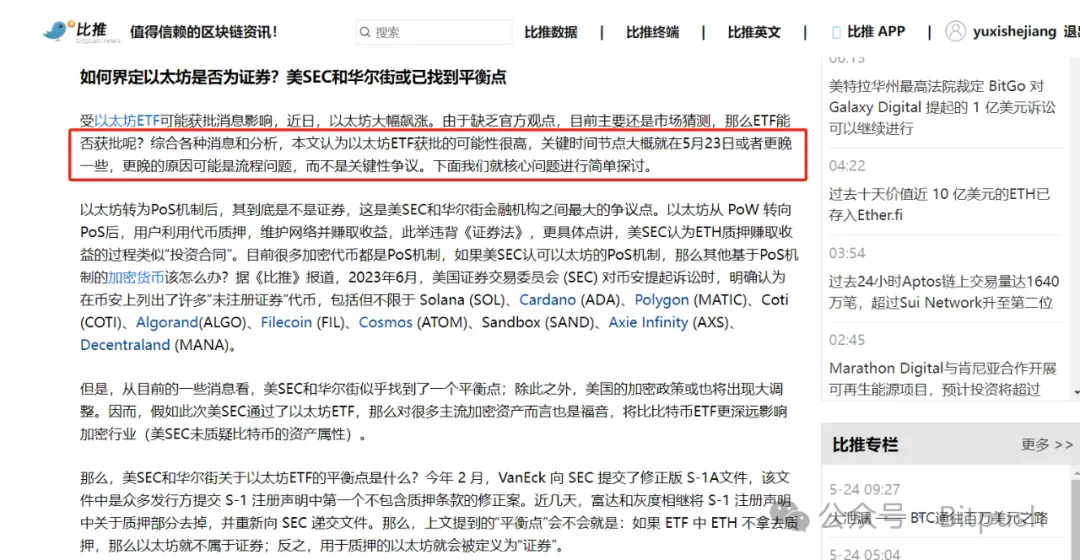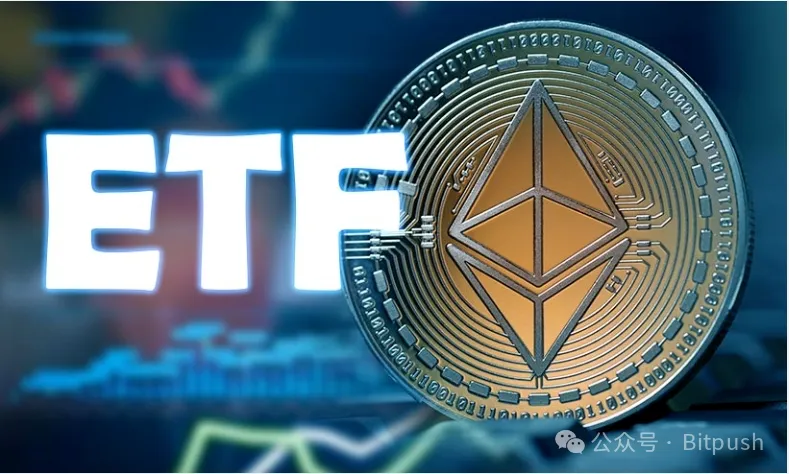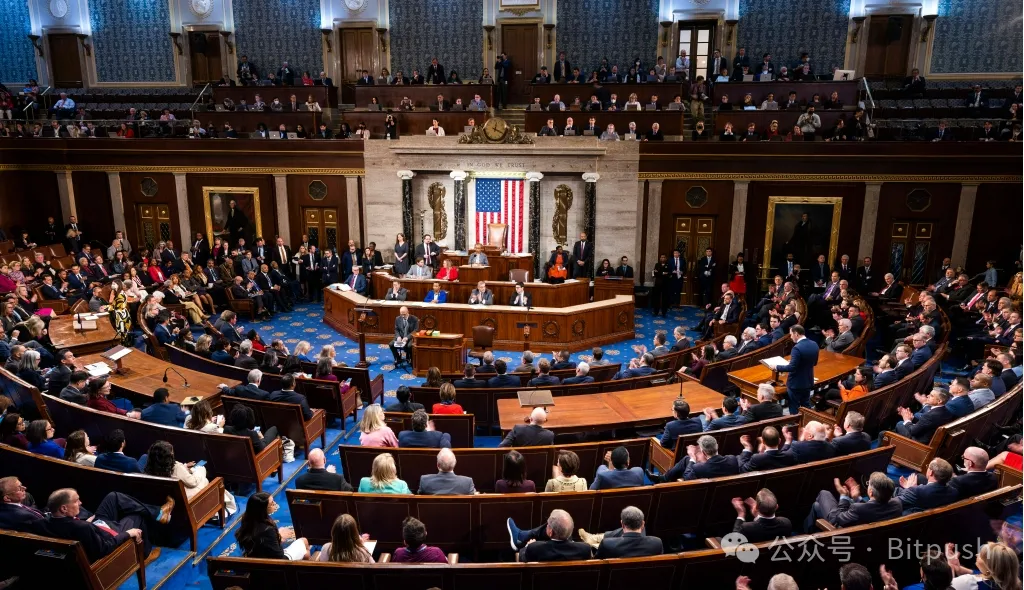On May 24, the U.S. Securities and Exchange Commission (SEC) document showed that the SEC approved the spot Ethereum ETF 19B-4 form of multiple issuers including BlackRock, Fidelity and Grayscale. Former U.S. Securities and Exchange Commission Chairman Jay Clayton said that the approval of the Ethereum ETF is carried out in two steps (Note: the U.S. SEC also needs to approve the S-1 form). It has been approved for listing, but the approval of the product itself is still pending. Although there are still some issues to be resolved, such approval is inevitable.
In a sense, the Ethereum ETF has been approved. We made an accurate prediction of this view in the article "Is the Ethereum ETF about to be launched? Watching the game between Wall Street and the SEC" before the Ethereum ETF was approved, and analyzed the reasons behind it in depth. However, many people in the market still find it puzzling that Ethereum has been approved, and they are too immersed in the approval of the Ethereum ETF and ignore a more important thing. This article will further interpret the complex relationship behind it; and based on this, we will further explore the development and impact of the Ethereum market in the future.

Let’s start with the fundamental reasons why Ethereum was approved
A truly important event for the crypto industry has been somewhat overlooked because of the approval of the Ethereum ETF. Many people are still confused about the approval of Ethereum, but they don’t know that it is precisely because of the neglect of this major event. So, let’s start with the fundamental reason why Ethereum was approved.
In the article “Is Ethereum ETF about to be launched? Watching the game between Wall Street and SEC”, we believe that Ethereum will be approved for two reasons: 1) The US SEC and Wall Street have found a “balance point” for the approval of Ethereum - there is no pledge clause in the Ethereum ETF; 2) However, the first reason is not perfect. It was essentially political reasons that prompted the US SEC to finally accept this compromise.
The full name of the FIT21 Act is the 21st Century Financial Innovation and Technology Act. On May 23, the U.S. House of Representatives passed the 21st Century Financial Innovation and Technology Act with 279 votes in favor and 136 votes against, with the House Democrats performing strongly. The FIT21 Act is essentially a joint effort by the House Financial Services Committee (which oversees the Securities and Exchange Commission) and the House Agriculture Committee (which oversees the Commodity Futures Trading Commission). This bill will establish a regulatory framework for crypto regulation in the United States, which is very important, and we will talk about it in more detail below.
The FIT21 regulatory bill involves many aspects. Let's first talk about a point related to the issue to be explained in this article - the boundary of crypto regulation. In the United States, the boundary between the U.S. Securities and Exchange Commission (SEC) and the Commodity Futures Trading Commission (CFTC) on who regulates cryptocurrencies has always been unclear, and the most controversial one is Ethereum. The CFTC believes that both Ethereum and Bitcoin are commodities, so Bitcoin and Ethereum futures were launched early. For Bitcoin, the SEC has little objection to Bitcoin's asset attributes, but only believes that it is suspected of manipulation, which is the reason why it has been reluctant to launch a Bitcoin spot ETF before; however, for Ethereum, SEC officials have long believed that it is a security after converting to a POS mechanism, which is why the Ethereum spot ETF has not been launched.
However, the FIT21 Act/HR 4763 clarifies which digital assets are regulated by the Commodity Futures Trading Commission (CFTC) and which are regulated by the Securities and Exchange Commission (SEC). The CFTC will regulate digital assets as a commodity "if the blockchain or digital ledger on which it operates is functional and decentralized". The SEC will regulate digital assets as a security "if its associated blockchain is functional but not decentralized". The bill defines decentralization as "among other requirements, no one has unilateral control over the blockchain or its use, and no issuer or associated person controls 20% or more of the digital asset or the voting power of the digital asset". From this definition, Ethereum is a commodity, so the SEC's previous definition of Ethereum as a security is invalid. On May 23, the FIT21 Act was passed by the House of Representatives; on May 24, the Ethereum ETF was approved, and the cause and effect are clear at a glance.

The far-reaching impact of Ethereum ETF approval
Once the Ethereum ETF is approved, it will not only affect the development of Ethereum, but will also have a profound impact on the crypto industry. Here we briefly talk about the potential balance reached between the SEC and Wall Street.
In February this year, VanEck submitted a revised S-1A document to the SEC that did not include a pledge clause; in recent days, Fidelity and Grayscale have successively removed the pledge section from the S-1 registration statement and resubmitted the document to the SEC. Therefore, we speculate that the "balance point" is: if ETH in the ETF is not pledged, then Ethereum does not belong to securities; conversely, Ethereum used for pledge will be defined as a "security". For this reason, the market believes that other mainstream cryptocurrencies will also have a high probability of listing on spot ETFs, among which SOL is the most optimistic in the market. In other words, why can Ethereum be listed on the PoS mechanism, but SOL and others cannot? This view in the market sounds reasonable at first glance, but the SEC has many reasons, such as manipulation and trading fraud? For example, Ethereum is sufficiently decentralized (after all, Ethereum has existed for a long time). If we only speculate on other mainstream cryptocurrencies from the approval of Ethereum, then, in fact, other mainstream crypto assets should not list new spot ETFs so quickly in the short term.
However, this article actually maintains a relatively positive attitude. This is mainly because of the FIT21 bill, because this is the bill that truly affects the future direction of mainstream crypto assets. The FIT21 bill was successfully passed in the House of Representatives, which is mainly related to the strong support of the Democratic Party. If the Democratic Party wins the US election this year, the chairman of the US SEC will most likely be replaced by a member of the Democratic Party, and it is very likely that he will vigorously promote the development of the crypto industry. In addition, this article believes that the United States actually has a relatively obvious advantage in the field of AI, which makes its overall national policy more inclusive and open to technological innovation, thereby ensuring its overall leading level of technology, which will undoubtedly benefit the high-tech crypto industry.

How will Ethereum's market develop in the future?
On May 24, crypto KOL Shenyu said that based on the experience of BTC ETF and public market information, the timeline for ETH ETF is as follows: May 23: ETH 19B4 passed unexpectedly, and market makers began to buy ETH spot to prepare for providing liquidity; early June: S1 may pass. Referring to BTC ETF, it takes 2 weeks at the fastest, but the normal rhythm may take 3 months; mid-June: After S1 passes, trading may start immediately, or within a few days; June to December: In the early stage of listing, the main capital inflow may come from retail investors, accounting for 80-90% of the total funds; institutional users participate less. Considering that ETHE is similar to GBTC, the market may face some arbitrage and selling pressure, and whether it can withstand such selling pressure remains to be seen; after December: over time, institutional investors may gradually enter the market.
This article believes that there is no doubt that Ethereum has become stronger after the approval of the Ethereum ETF. This is mainly due to the increase in demand, but it will not simply replicate the path of Bitcoin in getting the Bitcoin ETF approved. The most important difference lies in macro factors. At the beginning of the year, when the Bitcoin ETF was approved, the market actually expected the Federal Reserve to start cutting interest rates in June. Coupled with the strong expectation that the bull market would start after the Bitcoin halving, this undoubtedly greatly promoted the rise of Bitcoin. Although Ethereum has not performed so strongly this year, its increase is actually relatively high. In the future, its trend will still follow the trend of Bitcoin, and the trend of Bitcoin needs to focus on the policy changes of the Federal Reserve.
However, the overall market is optimistic about the future of Ethereum. Geoff Kendrick, head of foreign exchange research and digital asset research at Standard Chartered Bank, said: It is expected that the Ethereum spot ETF will drive an inflow of 2.39 to 9.15 million Ethereum in the first 12 months after approval. In US dollars, it is equivalent to approximately US$15 billion to US$45 billion. The year-end target price of Ethereum is US$8,000, and the price of Ethereum will reach US$14,000 by the end of 2025.
Bernstein analysts estimate that the approval of an Ethereum ETF will drive its price up 75% to $6,600. The SEC approved a similar Bitcoin product in January, spurring a 75% increase in Bitcoin prices in the following weeks, and ETH's price trend is expected to be similar. Nick Forster, founder of Lyra and a former Wall Street options trader, said: "According to the Lyra options market, the probability of Ethereum reaching $5,000 by June 28 is about 20%, and the probability of exceeding $5,500 by July 26 is also 20%.

Summarize
This article believes that the approval of the Ethereum ETF is due to the fact that the US SEC and Wall Street have found a balance point; and this is due to the shift in US policies, the most important of which is the FIT21 Act. Although the approval of the FIT21 Act was mainly driven by the Democratic Party, this article believes that this is mainly related to the shift in US national policies. With the continued leadership of OpenAI, Google, and Nvidia in the field of AI, the US economy has remained resilient. Although this has made the Federal Reserve no longer anxious to cut interest rates, it has also made US policymakers more open, inclusive, and encouraging innovation in high-tech (especially the blockchain industry, which is closely related to AI). This will undoubtedly accelerate the rapid development of the blockchain industry, and the prosperity of the crypto industry may be coming soon.







